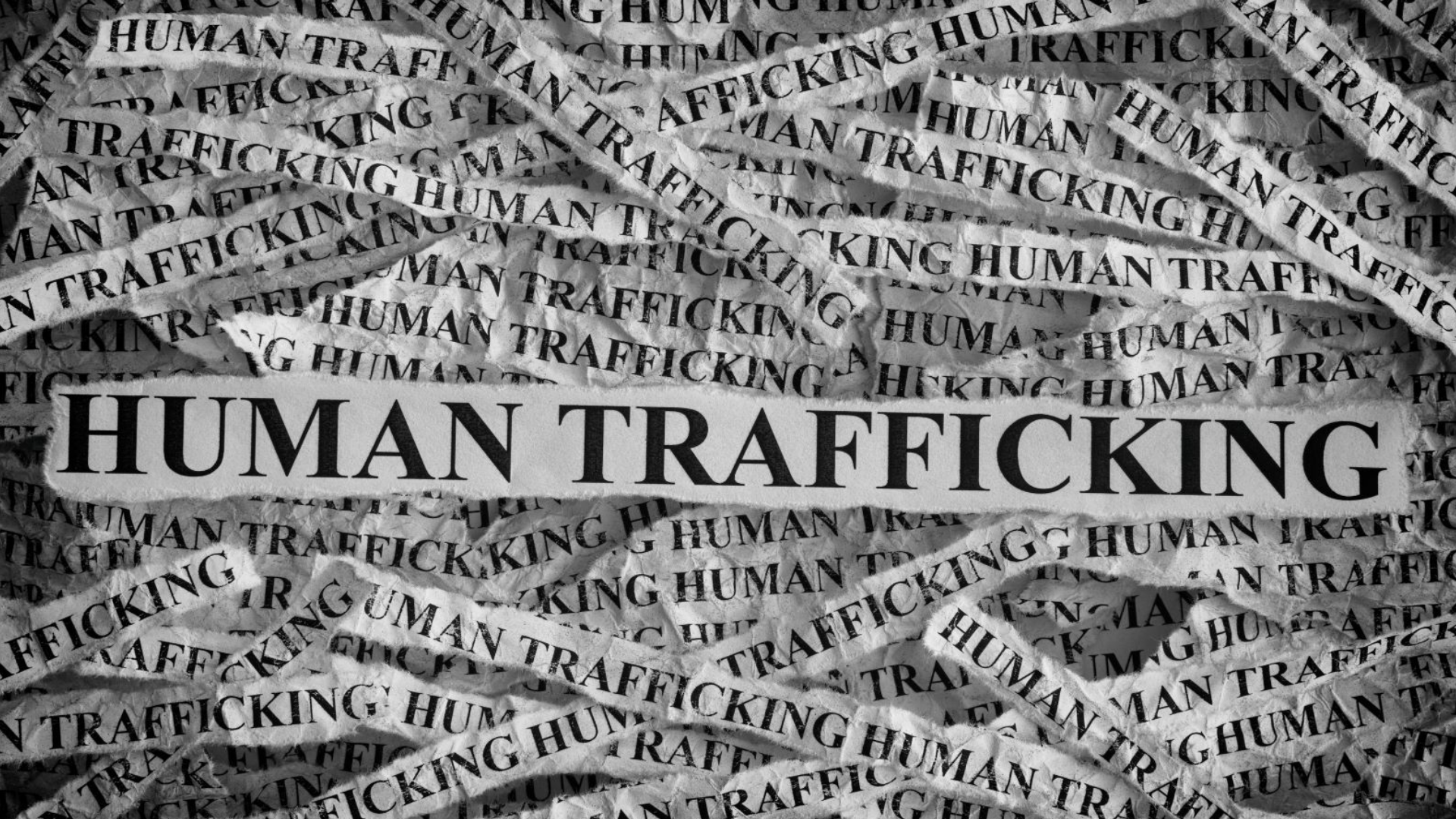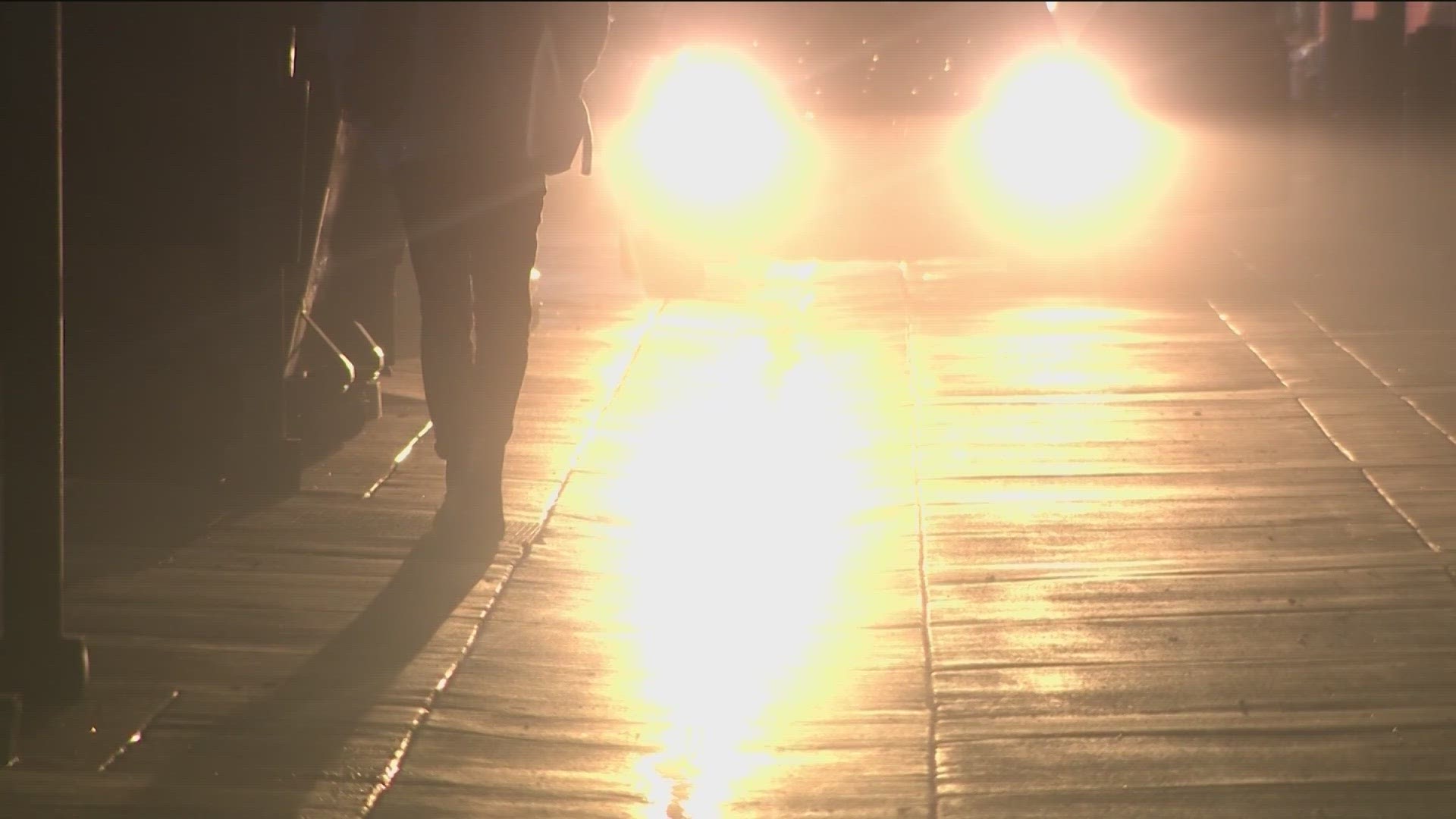'Underreported': Why advocates say human trafficking in Idaho is a bigger problem than data indicates
Although more than 100 law enforcement agencies submitted data for Idaho State Police’s 2022 crime report, only five reported human trafficking offenses.

In dark corners of communities around Idaho, and in plain sight, people are forced into modern slavery. Mya Bray, 38, knows the depths of human trafficking first-hand.
The man Bray said she trusted most — shattered her trust — after he started trafficking her five years ago. Bray said he blamed her for not contributing financially to the relationship.
“I was like, I don't know what I was supposed to do. I'm trying to get a job. And he said, 'well, that's not gonna make it. You’ve got to do something now, and the best way for you to do that is to have sex with somebody,'" she said.
Bray is not alone. Data from the Idaho State Police (ISP) 2022 Crime in Idaho report shows law enforcement agencies around the state reported 36 offenses of human trafficking last year.
Although it is a 414% increase from 2021, many advocates say the data does not paint an accurate picture of how prevalent human trafficking is in Idaho.
What is human trafficking?
Human trafficking occurs when someone uses force, fraud or coercion to get another person to work or have sex. Nampa Police Department (NPD) detective Chad Benson said the crime impacts people from all walks of life.
“I couldn't describe to you what a typical trafficker looks like,” he said, “because it varies. It can be male, female, old, young, from any ethnicity.”
However, Benson said he can describe what the typical buyer looks like in the U. S. — a middle-class adult male with a “good job and a family.”
What the data shows
The ISP 2022 Crime Report is an annual report falling under the Idaho Uniform Crime Reporting Program.
ISP spokesperson Aaron Snell said data collected through the program “provide a reliable set of criminal statistics for law enforcement purposes," and helps state and local governments.
Although more than 100 Idaho law enforcement agencies contributed data in 2022, the report shows only five agencies reported any human trafficking offenses. Those agencies include ISP, NPD, the Ada County Sheriff’s Office, Kootenai County Sheriff’s Office and the Fruitland Police Department.
The NPD accounted for 26 of the 36 reported offenses, according to the report.
“That’s because we actually are tracking that number and separating that out from other crimes,” Benson said.
He said they started prioritizing tracking human trafficking more than two years ago, after the department realized it is difficult to get necessary resources allocated to fighting a problem without having hard data to back up that claim.
Other agencies likely do not track and report human trafficking because it happens at the same time as other crimes and can be challenging for officers to identify, Benson said.
“We need to understand what it is and what it looks like in order to see that, yes, this is a drug offense, and this person maybe is in possession of some kind of a narcotic substance. But is there also more to what's going on,” he said.
Jennifer Zielinski, Idaho Anti-Trafficking Coalition executive director, agrees. Zielinski said human trafficking numbers are underreported partly because Idaho does not have the systems in place for comprehensive reporting and data collection.
“We have an entire population that is under-identified, underreported and funneling through our systems punitively,” she said.
Bray said when she was trafficked, she and her trafficker were pulled over multiple times. However, the officers did not recognize she was there against her will.
Eventually, she said they were both charged with drug-related crimes.
“It was his drugs on me he made me carry,” Bray said. “And when I told the officer what had happened, the officer wouldn’t believe me. He thought that I was just a prostitute that had a drug problem,” Bray said.
Solutions
Zielinski said the state needs to prioritize combating human trafficking. Including building a centralized and confidential database for agencies and organizations working directly with victims.
The ISP report does not show the scope of the human trafficking problem in Idaho because it only includes law enforcement agencies, she said. The Anti-Trafficking Coalition alone helped more than 160 people last year.
“It starts there so that we can actually and effectively advocate for a reallocation of funding that will support law enforcement, training and education that will actually implement systemic change and frameworks,” she said.
Benson said law enforcement agencies should also try to build solid relationships with nonprofits fighting against human trafficking because not every victim wants to go through the police.
Additionally, Benson and Zielinski want to change state codes around human trafficking so victims are no longer identified as prostitutes. Statistically, Benson said statistics show only one out of 100 girls selling sex is actually a prostitute.
They said changing the codes would help hold the right people, the traffickers and buyers, accountable.
“If you view the individual from the lens of prostitution, Zielinski said, “then you are saying that that person is choosing to do it, and nobody is forcing that."
However, it is not just on lawmakers, law enforcement and other advocates to be the change. Bray said everyone has a personal responsibility to help bring the issue of human trafficking out of the darkness.
More than that, she hopes people start listening to victims when they choose to speak up.
“A lot of ground has been covered with trying to start the training throughout the community,” Bray said, “but I think we have a long way to go.”
Resources
Common signs of human trafficking include a big age gap between a guy and a girl, especially if it is obvious they are not related. Someone dressed inappropriately for the weather or situation is another indicator.
If you are being trafficked or know of someone being trafficked, call a crisis hotline. Community members should call law enforcement if another person is hurt or in danger.
National Human Trafficking Hotline – 1-888-373-7888
Idaho Anti-Trafficking Coalition – 208-630-6601
Community Outreach Behavioral Services: 208-803-1695
Watch more Local News:
See the latest news from around the Treasure Valley and the Gem State in our YouTube playlist:
HERE ARE MORE WAYS TO GET NEWS FROM KTVB:
Download the KTVB News Mobile App
Apple iOS: Click here to download
Google Play: Click here to download
Watch news reports for FREE on YouTube: KTVB YouTube channel
Stream Live for FREE on ROKU: Add the channel from the ROKU store or by searching 'KTVB'.
Stream Live for FREE on FIRE TV: Search ‘KTVB’ and click ‘Get’ to download.


